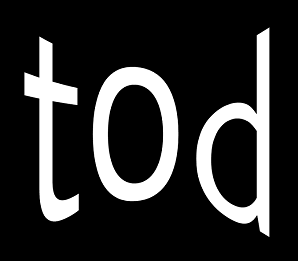Starting September 12 the US Department of Justice, 49 states, and US territories are suing Google over its monopoly on search.
- But will ChatGPT, Bing, Bard, and other chatbots’ answers to search queries, and even Google’s own generative search results reduce its share of search?
- Will getting answers to searches instead of just results to search within impact the billions of dollars in revenue from the paid ads Google promotes over organic search results?
- Will the rapid advances in, and adoption of, AI-powered chat make the antitrust case moot?
Click to Read Sections:
Why States and the Dept. of Justice Are Suing Google
The general gripe is the stack of paid search results atop and aside unpaid, or organic, search results that generate gazillions of dollars for Google. According to Statista, Google’s revenue from paid search ads in 2022 was $209.49 billion – up 22.2% from 2021. Paid search ads are the most important source of revenue for Google, accounting for over 80% of the company’s total revenue, despite the small percentage of clicks consumers give these ads versus organic results.
For example, in 2023, the click-through rate (CTR) for the first organic search result was 39.8%, and the second position was 15.8%, while the CTR for ad results was 1.2–2.1%. If the first unpaid result is a snippet, aka a featured answer, it gets a 42.9% click-through rate. And according to firstpagesage.com, the #1 organic search result receives, on average, 19x more clicks than the top paid search result. This is evidence that users find organic results more trustworthy than paid ads.
How Google Gets 90% of General Internet Searches
The first allegation of the antitrust case is that Google gains its monopoly on search by getting mobile carriers and smartphone manufacturers to make it the default search engine. Google pays Apple, Samsung, Verizon, and AT&T billions, but makes it back in buckets of ad revenue. Google says their search engine is the best, and that consumers choose it. The government argues that, despite how easy it is to switch the preferred search engine, those users never get the chance to try the competition because Google purchases its prime position, thus knocking out the competition before they ever get in the ring. The states argue consumers are harmed because there’s less incentive to innovate and invent better search experiences given the insulation from competition.
The Accusation of Antitrust Violations: Google and SA360’s Limitations on Buying Ads from Competing Search Engines
The second alleged antitrust activity is the accusation that Google doesn’t support the ability to buy ads on competing search engines within SA360. Search Ads 360 (SA360) is a Google Ads product that provides big advertisers with a suite of tools to manage their paid search campaigns across multiple channels. SA360 offers features that are not available in the basic Google Ads tool, such as:
- Cross-platform reporting: SA360 allows businesses to track their paid search performance across different platforms, such as Google Search, YouTube, and Display Network.
- Advanced bidding: SA360 offers a variety of advanced bidding strategies that can help businesses improve their return on investment (ROI).
- Data integration: SA360 can integrate with other data sources, such as CRM and marketing automation platforms, to provide businesses with a more holistic view of their customers.
Yes, Google is supposed to allow ad buys on rival networks. In fact, Google has a policy that prohibits self-preferencing, which means that Google cannot favor its own products or services over those of its competitors. This policy applies to all of Google’s products, including SA360, in theory anyway.
Meanwhile, a New Crop of AI-powered Chatbots is Growing Its Audience by Answering Searches
The trial against Google is scheduled to take months and cost millions of taxpayer dollars. The evidentuary stage is supposed to take the rest of this year, and if Google is found guilty of violating the Sherman Act, there will be another session next year to decide on the punishment. (The Sherman Antitrust Act of 1890 is a U.S. federal law designed to promote economic competition and prevent monopolistic practices. It prohibits agreements among companies that restrain trade, such as cartels, and makes it illegal for a single company to monopolize or attempt to monopolize a market.)
In the meantime, ChatGPT, Bing Chat, and Claude are stealing slices of Google’s pie. Google Bard is answering search queries without having to scroll past paid search results. And if users opt in, even Google’s generative search results get users to the goods without all the advertising clutter.

ChatGPT was released in the fall of 2022, and Bing Chat debuted in February 2023, catching Google flat-footed in the race to introduce generative search results that answer search queries. In their Test Kitchen, Google is rolling out their conversational chatbot Lamda 2, available by invitation only as of now, even as Google Bard is drawing users away from traditional Google search.
AI is Coming to an Application Near You
Besides these bots, AI-powered assistants are appearing within all kinds of applications. Microsoft has already started to put AI-powered assistants within Windows and Office apps. For example, the company’s new Windows Copilot assistant is available in the Insider Preview build of Windows 11. Copilot is powered by OpenAI’s GPT-3 language model and can help users with tasks such as writing emails, creating presentations, and editing documents. Microsoft is also working on integrating AI into other Office apps, such as Word, Excel, PowerPoint, and a new AI-powered feature for Word that will help users find the right words to use in their writing.
Meta is Building AI, Too
Not to be outdone, Meta is reportedly working on a new AI system, which is expected to be as powerful as OpenAI’s GPT-4. According to the Wall Street Journal, the new AI system from Meta will be ready next year, and the company aims to start training the new large language model in early 2024. The report says Meta’s new AI model will be several times more powerful than its existing Llama 2 model. While the details are sparse, the system would help other companies build AI-powered services to produce text, analysis, and other kinds output.
Will Google Lose Its Monopoly On Search?
If Google is found guilty of antitrust laws, it could be forced to stop certain business strategies, cooperate with competing companies, or even sell some of its business. But as the wheels of justice slowly turn, let’s assume Google is found guilty. After that come the appeals that could allow Google’s monopoly allocation of search for even longer. Or would it?
What Comes First – the Court Case or the Competition?
According to GuruFocus, Google’s EBITDA for the trailing twelve months (TTM) ended June 30, 2023 was $88.632 billion. So, even if these new entrants into Google’s domain claim just 20% of Internet searches, it would reduce Google’s ad revenue by $40 billion, landing a big blow to Google’s bottom line. But beyond the lost ad-buying revenue, Google loses data – the data on consumers it uses to target users with tailored ads that greases the gears and keeps the monopoly going. That’s the real unraveling of Google’s until-now unchallenged leader position.
Whatever happens, it will happen sooner than later. AI is changing everything, and allowing it to happen faster than ever before. It may be the market that sees the mitigation of Google’s monopoly sooner than the litigation.

